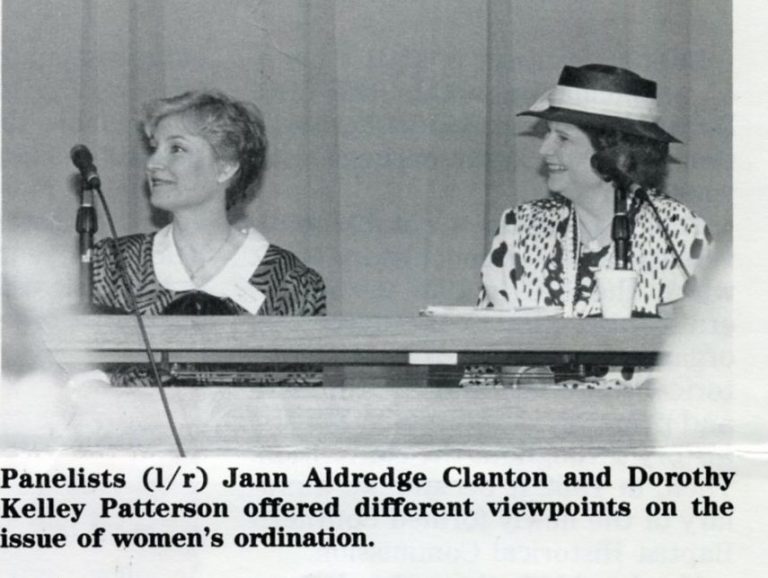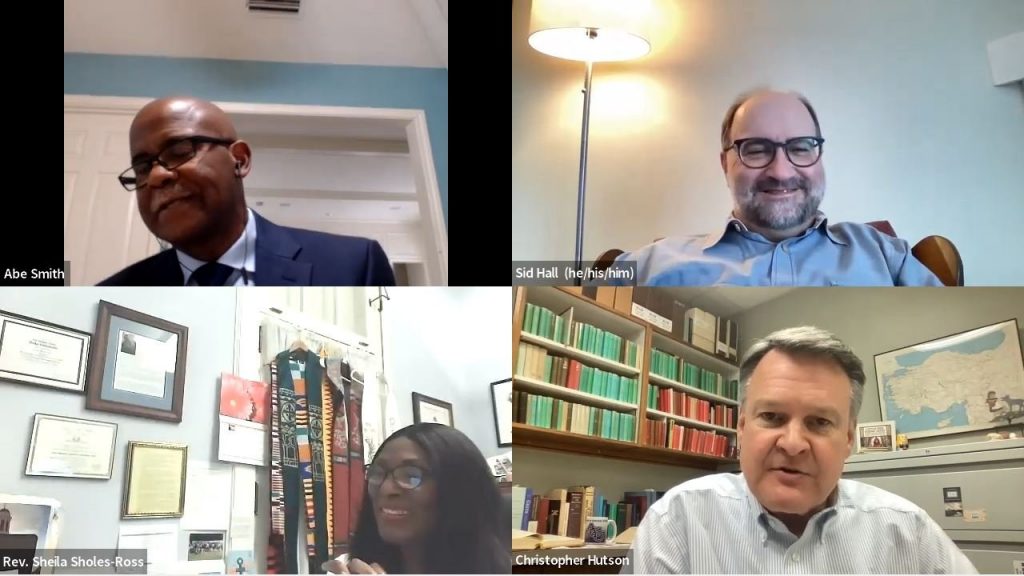Male Allies, Equity for Women in the Church
Before I became an endorsed clergywoman in the Alliance of Baptists, I was ordained in 1985 by a church affiliated with the Southern Baptist Convention (SBC), Seventh and James Baptist Church in Waco, Texas, and became active in Southern Baptist Women in Ministry (SBWIM). A few years later, I was endorsed by the SBC for pastoral ministry as a chaplain.
Along with others in SBWIM, I became a strong advocate of women’s ordination and of opportunities for women to follow our ministry callings whatever they may be. I attended several SBC conventions where the “woman question” was debated. I wondered why the “man question” wasn’t debated. Why does anyone believe that only a man can be called to pastoral ministry and that a man is more qualified than a woman to pastor a church? Why would any man deny women’s callings and prohibit us from using all our ministry gifts, including preaching?

In 1984 the Southern Baptist Convention passed a resolution against the ordination of women and against women in pastoral positions. In June of 1988 I preached a sermon at the annual Southern Baptist Women in Ministry meeting, proclaiming that clergywomen and lay supporters were prophets of a new vision of gender equality in church leadership. In July of 1988 at the annual meeting of the Southern Baptist Historical Commission, I took a stand for the ordination of women in a debate with Dorothy Patterson, one of the architects of the fundamentalist takeover of the SBC.
Shortly after, I broke ties with the SBC and moved my endorsement to the Alliance of Baptists. The Alliance has advocated for women’s ordination and women in pastoral ministries from its inception in 1987. Founded in 1991, the Cooperative Baptist Fellowship has always affirmed women’s ordination and women in all ministry positions. American Baptists began ordaining women almost a century earlier, in 1898. Other Protestant denominations started ordaining women in 1810.
So why decades and centuries later do we still need to debate whether or not women should be ordained to use our pastoral gifts and follow our callings?

In an interview with three male allies and Equity for Women in the Church board members, Rev. Sheila Sholes-Ross, co-chair of Equity, also asks why we’re still having these conversations in 2022.
Dr. Christopher Hutson, Professor of Bible, Missions, and Ministry at Abilene Christian University, responds:
“I’m always taken aback when I meet new folks who haven’t heard any of the issues before, but every time I give a talk, someone is always hearing these ideas for the first time. So why is that? Clergy and scholars have been writing and publishing and preaching these things for decades, so why is the message not filtering down? There are networks of churches that are aggressively promoting a strong patriarchalism that’s pretty misogynistic. Many folks grow up in, or are influenced by, these points of view through social media and television. In some ways, the conversation is going backward. So it’s not surprising that there are a lot of folks who are hearing these issues being expressed for the first time.” Dr. Hutson emphasizes the need for fuller explication of scriptures used to limit the ministry or women and the theological importance of Galatians 3:28, that affirms gender equality.
Rev. Dr. Abraham Smith, Professor of New Testament at Perkins School of Theology in Dallas, states that we’re still having these conversations because some people “use scripture as the basis for denying women leadership roles, particularly senior leadership roles, in the church.
We’re still having these conversations because of a lack of moral or political will, and because there is a degree of socialized male shaming that often accompanies misogynist practices. But if enough of us in our churches would rise up against such marginalization, I think we could see some changes.” He further asserts that 1 Corinthians 14: 33-36, often used to subjugate women, is an interpolation. “It goes against the grain of Paul’s egalitarian ethos found elsewhere in his letters. In all of Paul’s other undisputed letters, he does not place limitations on women and their roles in the churches. In the case of Euodia and Syntyche in Philippians, Paul claims that these women struggled alongside him in the gospel. Phoebe, a deacon, likely delivered one of Paul’s letters to a church in Rome. Junia, a woman, was an apostle.”
Rev. Dr. Sid Hall, Pastor Emeritus, Trinity Church of Austin, cites Galatians 3:28 as central to Paul’s theology.
“This formula was part of an early baptismal ritual and liturgy, and it may be the very first creed of the church. It said, ‘In Christ there is neither Jew nor Greek, slave nor free’—and then, interestingly, something I’d never noticed before—‘no male and female’—not ‘nor.’ In the early church, when you took on the mantle of Christ and went down into the water and came back up again, you were taking on a flattening of the world. And the radicalism of that was profound. We’ve lost the sense of that: ‘neither Jew nor Greek, slave nor free’—that’s the whole oppressive Roman economic system. To be a Christian was to take your life in your own hands and to speak from a radical sense of inclusion. For me, that scripture is very powerful.”
Listen to all the interview.
Read an article published in Baptist News Global, “Let’s Hear from the Male Allies,” by Rev. Sheila Sholes-Ross.
Thanks for this, Jann.
Kathy
Thank you, Kathy, for all your creative work advocating for women in ministry!
Jann